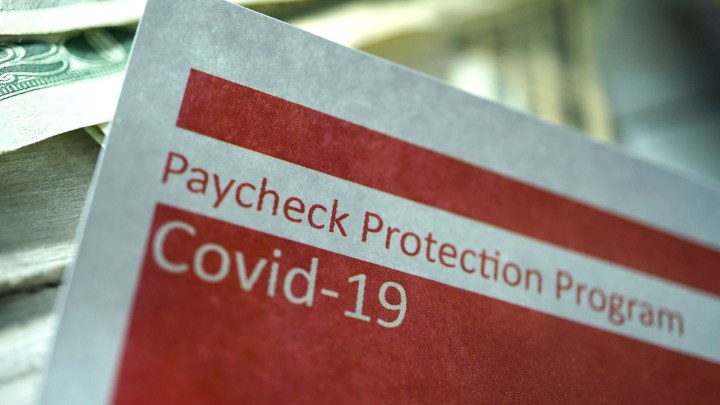
Feds’ guidance hurt minority-owned businesses’ PPP chances, report says
Feds’ guidance hurt minority-owned businesses’ PPP chances, report says

As the White House and Congress continue talks about a new relief bill, we’re learning more about how the last one played out — especially when it comes to the Paycheck Protection Program.
A new report from the House Select Subcommittee on the Coronavirus Crisis found that the Treasury Department suggested that banks should favor their existing customers when they applied for Paycheck Protection Program loans. That meant that some businesses, especially ones owned by women and minorities, were left out in the cold.
Back in April, J. Craig Gordon tried to apply through a bank for a PPP loan for the home health care company he runs in Savannah, Georgia.
“It wasn’t a situation where we could even get an application in,” he said.
He didn’t have a relationship with that bank. He tried applying through another bank. No luck there, either.
Gordon cut his own salary and put expansion plans on hold.
“The next layer of cuts unfortunately was gonna probably have to be some administrative layoffs. But thank goodness we weren’t in a situation where we had to do that,” he said.
Hurdles like the ones Gordon had to clear discouraged many Black business owners from applying for PPP loans, said Amanda Ballantyne, executive director of the small business advocacy group Main Street Alliance.
“Black business owners were 50% more likely than white business owners to believe they wouldn’t be approved and were three times more likely than white business owners to be unaware that the program even existed,” she said.
A Main Street Alliance and Color of Change poll found that almost half of Black-owned small businesses have either shut down already or will soon.
And even for those that managed to stay open, the pandemic recession is likely to do long-term damage, said Rashad Robinson, president of Color of Change, a racial justice nonprofit.
“They maybe lose connections with some of their customers, with the supply chain, maybe for materials or other things necessary to keep the business alive,” he said.
That damage to businesses, Robinson said, makes Black communities more susceptible to gentrification.
This piece has been updated to include the names of both groups that conducted the survey of Black-owned businesses.
There’s a lot happening in the world. Through it all, Marketplace is here for you.
You rely on Marketplace to break down the world’s events and tell you how it affects you in a fact-based, approachable way. We rely on your financial support to keep making that possible.
Your donation today powers the independent journalism that you rely on. For just $5/month, you can help sustain Marketplace so we can keep reporting on the things that matter to you.


















